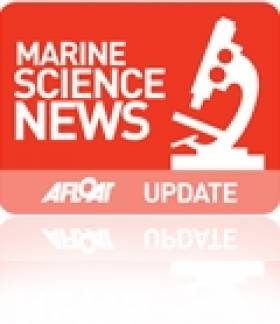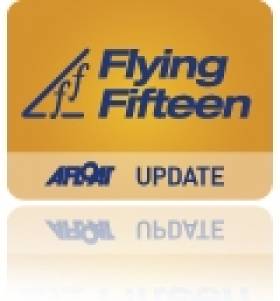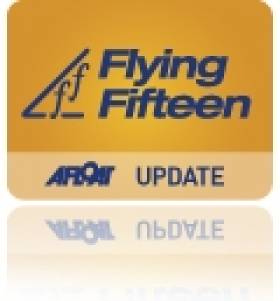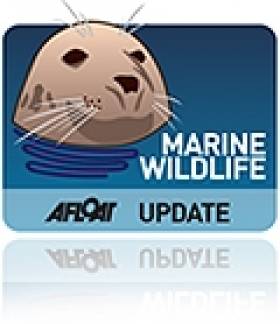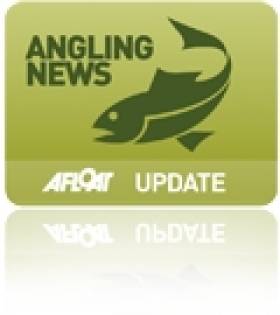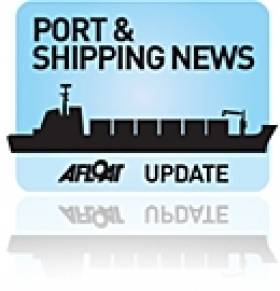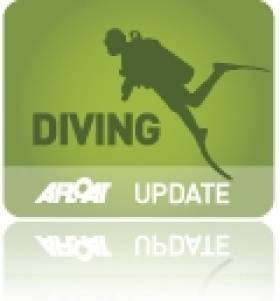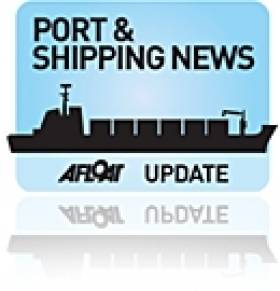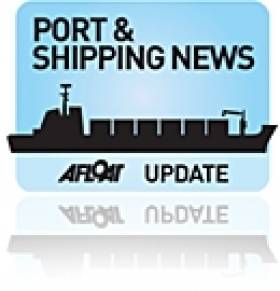Displaying items by tag: Dundalk
Sea Trout Experts To Gather In Dundalk For International Symposium Next Month
#MarineScience - The second International Sea Trout Symposium will take place in Dundalk, Co Louth from 20-22 October, as previously reported on Afloat.ie.
Building on the success of the previous symposium on the biology, conservation and management of the important fishing species, held in Cardiff in 2004, next month's convention will bring together fishery scientists, managers, policy makers and other interested parties to discuss developments over the last 11 years, identify strategic gaps in knowledge and review priorities for future investigation.
Inland Fisheries Ireland's (IFI) head of research Dr Cathal Gallagher says: “This is a great opportunity for all those interested in the ecology, management and conservation of sea trout to interact with the leading international scientists, managers and policy makers working in this area.
"It is hoped that the outputs from this important symposium will help to drive Ireland’s policy for the future management of our sea trout populations.”
Dr Ciaran Byrne, IFI chief executive, added that the symposium "gives us an important opportunity to review the progress in improving our understanding of biology, ecology, genetics and behaviour of sea trout [since Cardiff] and to identify knowledge gaps required to support the future management of this important species.”
For more information visit www.fisheriesireland.ie
Registration Open For International Sea Trout Symposium
#MarineScience - The second International Sea Trout Symposium will take place in Dundalk, Co Louth from 20-22 October 2015.
Targeted at scientists, managers and other fishery stakeholder interests in the public and private sectors, the central aim is to promote the wider application of an evidence-based approach to the future management and regulation of the sea trout and to ensure that its often very special needs become fully integrated into catchment management plans and environmental impact assessments.
This major event will build on the success of the first International Symposium on the ‘Biology, Conservation & Management of Sea Trout’ held in Cardiff, Wales in 2004. Its overall objective will be to promote the application of the latest science to the better management of sea trout stocks and their associated fisheries.
It will consider developments since the previous symposium, highlight the implications of the strategic gaps in our knowledge that currently limit our ability to manage the resource effectively and review priorities for future investigation.
The symposium is aimed at fishery scientists, managers, policy makers and other interested parties. It is planned to provide practical guidance to assist managers and regulators in the sustainable management of the sea trout resource and to ensure that they are fully integrated into any assessment of the impact of other policies, regulations and developments affecting their aquatic environment. While primarily focused on migratory sea trout, it will include non-migratory trout and other anadromous species where relevant.
Symposium topics will include:
- Understanding Anadromy
- Populations & Management
- Movements & Migration
- Ecology & Behaviour
- Monitoring & Surveillance
- Threat Assessment
- Future management and research
Rates for the symposium start at €70 for the daily attendance package, with a basic three-day delegate package priced at €230 and the full package (including the gala dinner and a copy of the proceedings) at €330. A student delegate package for PhD and MSc candidates is available for €150.
The closing date for registrations is 4 September 2015. Details of the programme, accommodation and travel are available at the Sea Trout Symposium website.
Lavery Wins Flying Fifteen Carlingford Title
#flyingfifteen – John Lavery of the National Yacht Club marked his return to the Irish Flying Fifteen circuit with a win at the southern championships at Dundalk Sailing Club on Carlingford Lough at the weekend. While there was a small enough turnout of 13 boats there was a tight finish at the top of the fleet after four races.
Sailed in everything from 20–knot gusts on Saturday to less than 5 knots and 2–knot tides on Sunday, visiting race officer PJ Gault from Strangford Lough did well to complete the series given the unpredictability of the south westerly conditions.
Lavery, sailing with David O'Brien, finished with a 1,2,2 but second and third overall were decided only on the tie break rule with Strangford's Andrew McCreery and Colin Dougan counting a 1,3,4 but earning the runner–up slot from clubmate's Roger Chamberlain and Hamo Baker on the same score.
The full results of the Flying fifteen 2014 Southern Regatta are available to download below.
The next event for the 'ffers' is next month's Northern Championship at Cushendall SC from June 14/15. The Championship of Ireland is also heading North to Portaferry SC on Strangford Lough from August 22-24. The season conlcudes with the East Coast Championship in Dun Laoghiaire, at the National YC from October 4/5
#flyingfifteen – National Flying fifteen champions Ian Mathews and Keith Poole were dismasted during a breezy start to the Dublin Bay season last weekend. It's a set back in preparations for this weekend's first regional Flying fifteen event at Dundalk Sailing Club on Carlingford Lough which the duo are still expecting to contest.
The National Yacht Club pair, who won the national championships in Dunmore East last season, broke a stay leaving them looking for a replacement spar for the County Louth fixture. Sailing Instructions for the event are downloadable below.
Up to 30 boats are expected on the northern lough on Saturday for a five race event that is forecasted to be a light air event.
Meanwhile, there was an early start to the season for a number of Irish FF sailors who travelled to Palma Vela regatta, held in Mallorca a fortnight ago. The National Yacht Club's Alan Green sailing with Michael Clough was the winner of the Flying Fifteen division. Irish crews Simon Murray, Chris Doorly and Ken Dumpleton were also racing in Spain.
In buoyant times for the class, the Kia sponsored Dun Laoghaire Flying Fifteen fleet continues to expand with a number of new boats to the fleet as well as some crews upgrading their boats. For the first time in a long number of years the fleet has expanded to include boats in the DMYC. More on the FF fleet expansion here
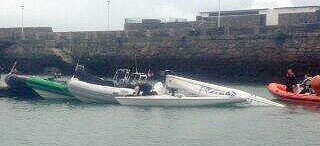
Flying fifteen duo Ian Mathews and Keith Poole secure their boat after a dismasting in DBSC racing last weekend
Carcass of Rescued 'Dolphin' Found Beached in Dundalk
#MARINE WILDLIFE - The body of a porpoise washed up on a beach near Dundalk recently is believed to be one of two 'dolphins' rescued from the area just days before.
The Dundalk Democrat reports that the porpoise carcass was discovered by Blackrock Tidy Towns supervisor Pat Rafferty while on a litter patrol of the beach on Tuesday 3 June.
“It must have beached on Monday night sometime, as we would have seen it the day before," he said. "Unfortunately it seems that gulls had got to it.”
Rafferty added: "“Maybe if it had beached during the day we would have been able to rescue it.”
It's thought that the porpoise is one of the two 'dolphins' that were rescued from the shallows by local people and the DunDalk Sub Aqua Team during the Blackrock Raft Race on 25 June.
Harbour porpoises - one of the most common forms of marine wildlife in Ireland - are very similar in apperance to dolphins but have a more triangular dorsal fin and lack the dolphin's beak-like snout.
The Dundalk Democrat has more on the story HERE.
Minister Opens White River Fishery Enhancement Project
#ANGLING - Minister of State Fergus O'Dowd was on hand at the opening of the White River enhancement project in Dunleer, Co Louth earlier this month.
The €32,000 project was funded by the Louth Leader Partnership, with works were carried out by the Dee and Glyde Fishing Development Association and the Dundalk district staff of Inland Fisheries Ireland.
The White River, a tributary of the River Dee, is considered hugely important as a spawning and nursery area, and it has already seen significant improvements in the levels of juvenile salmon and trout.
Instream enhancement works began in 2006, supervised by Inland Fisheries Ireland, and included the introduction of new gravel, weirs, deflectors and spawning beds which have helped the White River to achieve its potential in terms of fish numbers.
Speaking at the launch, Inland Fisheries Ireland CEO Dr Ciaran Byrne said: "The work that I have seen on the river is fantastic and a credit to all involved."
IFI assistant inspector in Dundalk, Ronan O’Brien, said project was based on restoring the natural features of the river.
He added that the programme was a great recognition of the work carried out by the Dee and Glyde Fishing Association, and that it had strengthened links with local business and development groups and could be used as a template for other projects in the area.
O'Hanlon Firm Wins Tender to Operate Dundalk Port
At the time of the Minister's announcement in May, Mr. Varadkar indicated his hope that port activities would continue at Dundalk following the transfer and of a possibility that the port could return to local control, in co-operation with private sector operators. Today's announcement means that the under the terms of the agreement O'Hanlon & Sons Contractors Ltd., a local company, will be responsible for all commercial and operational matters in Dundalk Port.
Commenting on the announcement, Mr. Eamonn O'Reilly, Chief Executive, Dublin Port Company said: "I am delighted today to be able to confirm that we have entered into an agreement with O'Hanlon & Sons Contractors Ltd. to operate the Dundalk Port. This is a unique development in the Irish port sector but I believe that if Dundalk is to have a future it is best to have local private sector interests empowered to carve out a future for themselves, for the port and for everybody who depends on the port."
Dundalk Divers Pay Tribute to 20 Lost on SS Dundalk in 1918
On the 14th of October 1918, 20 people from Dundalk lost their lives aboard SS Dundalk when it sunk 60 miles south of the Isle of Man writes Timmy Carey. Earlier this year to mark the 92nd anniversary of the loss a number of Dundalk Sub Aqua Club divers carried out a commemorative dive to the wreck and laid a plaque of remembrance sponsored by Dundalk town council.
The team also placed an air tight capsule containing objects from the relatives of the survivors and those lost on the tragic ship.
Some artifacts were removed from the wreck and brought home to Dundalk and the team donated them to the local museum where they made a presentation of the expedition and showed some underwater footage of the wreck in its current state. The presentation was held on 14th October to mark the 92nd anniversary of the sinking and the team were joined by some relatives and members of the public for an emotional night with prayers and music provided by Fr Clem McManus a local Redemptorist Priest.
Read or hear the story of the SS Dundalk on their website HERE
Photos below courtesy of Paddy Agnew, Dundalk Sub Aqua Club
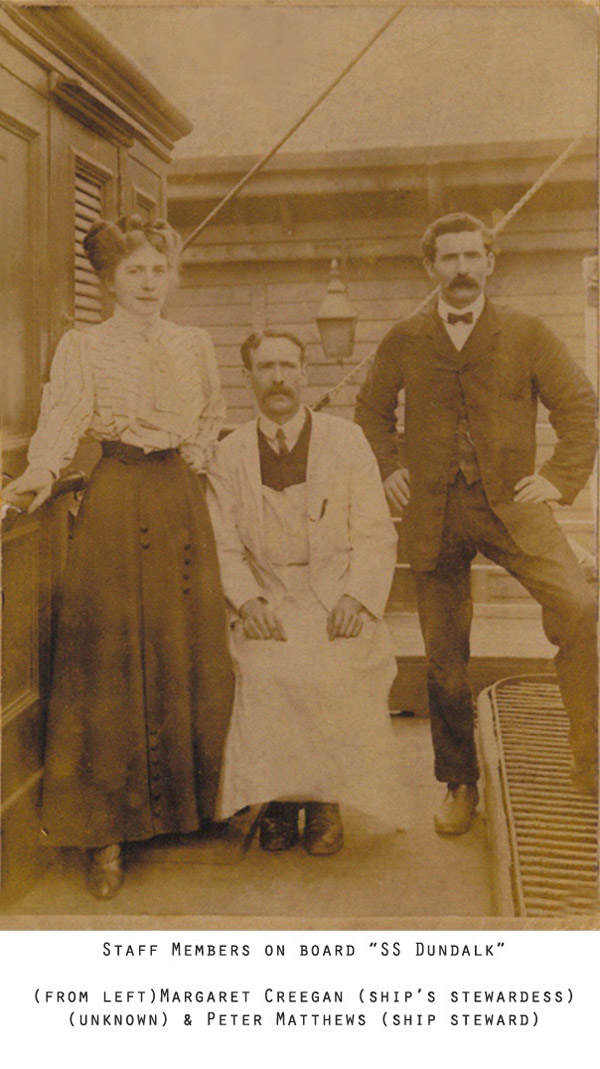
Local townsfolk who were lost on The SS Dundalk
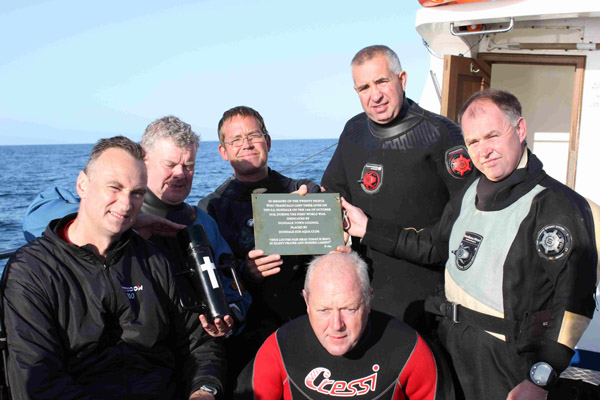
Members of Dundalk Sub-Aqua dive team before making their descent to the wreck of the SS Dundalk
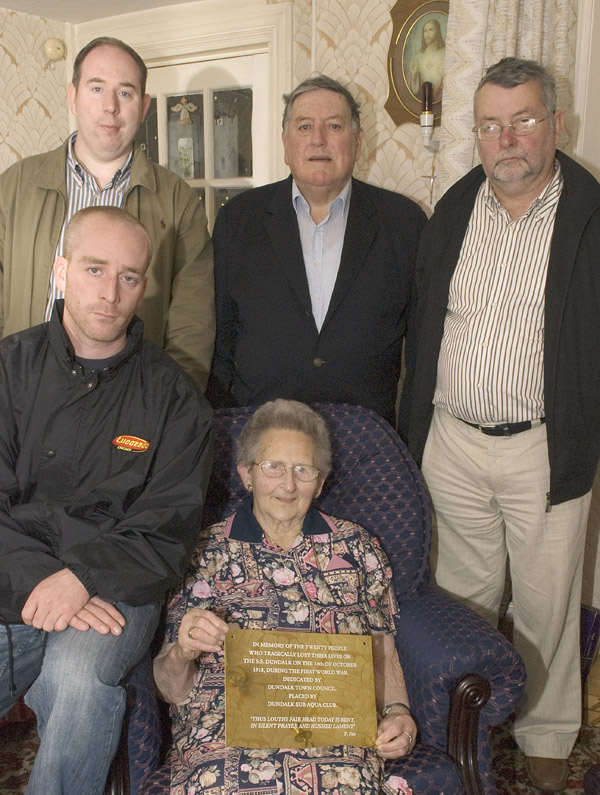
Government Begins Review of Irish Ports
Minister for Transport Noel Dempsey T.D. today announced the launch of a national ports policy review with the publication of a consultation document.
There are ten State commercial port companies established and operating pursuant to the terms of the Harbours Acts 1996 - 2009; Cork, Drogheda, Dublin, Dundalk, Dún Laoghaire, Galway, New Ross, Shannon Foynes, Waterford and Wicklow.
It is estimated that approximately 99% by volume of all goods traded into and out of Ireland are handled at our ports. Dublin Port is the State's biggest port handling approximately 44% of all tonnage in 2009. Cork and Shannon Foynes were the second and third biggest ports respectively in 2009.
Today's consultation document provides stakeholders with an opportunity to help shape future ports policy.
Speaking today Minister Dempsey said; "In 2005 our national Ports Policy Statement outlined national ports policy in a single document for the first time. Since then the commercial, technological, and regulatory environment in which Irish ports operate has changed dramatically, both domestically and globally. It is now time to carry out a review of this policy framework to ensure that our ports are properly positioned for the future.
Since 2005 our ports have experienced both record highs and more recently sharp declines in tonnage throughput. The ports face considerable challenges and it is important that national policy helps address these. The indications are that the country's return to economic growth will be export led. In this regard, it is vital that the ports are in a position to facilitate this and to make their contribution to improving national competitiveness.
I would encourage all interested parties to engage fully in this important consultation process."
The consultation document provides an overview of developments in the sector since 2005 and poses a number of questions on the continued validity and future direction of national ports policy.
Important issues addressed in the document include planning and funding future port developments, the role ports have to play in delivering the "Smarter Travel" agenda, competition within the sector and the corporate governance regime for port companies.
The public consultation period is scheduled to continue until Friday 29th October 2010.
The full Consultation Document is available for download below
To make a submission click HERE
Read Tom MacSweeney's Island Nation blog on the importance of ports HERE
The MV Linda is to be rechristened the Rachel Corrie on Wednesday, May 12th, at 10am in Dundalk Port, in honour of the 23 year old American peace activist who was killed during a non-violent protest to stop Israeli forces bulldozing the home of Palestinian family in Gaza, in 2003.
Afterwards the vessel will set out on its voyage to Cyprus where it will join other vessels in bringing urgently needed medical, educational and construction supplies to the people of the Gaza strip.
Background: The 1,800 tonne vessel was purchased by the Free Gaza Campaign for €70,000 at an auction in the Crown Plaza hotel, Dundalk, on March 30th. The proceeds from the sale were used to pay arrears owed to the, mainly Ukrainian, crew who were abandoned by the ship’s owners at Dundalk Port last July.
The vessel was seized and auctioned by order of the High Court following an application by International Transport Federation inspector, and SIPTU official, Ken Fleming.
Today Mr Fleming said the ITF “welcomes the fact that the mv Rachel Corrie will be put to a better, more humanitarian use than the exploitation of sea-farers. The Irish Government must do more to stop the exploitation of sea-farers coming into our ports.
“Meanwhile I will be there on Wednesday, on behalf of the ITF and SIPTU to wish the new owners God speed”.



























